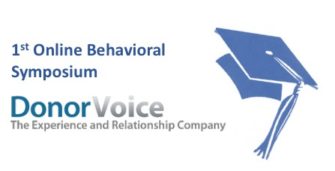2019 DonorVoice Behavioral Symposium

Invaluable academic knowledge typically remains inaccessible to fundraising practitioners. Academics, on the other hand, are usually unaware of the real-life challenges charities face.
In an effort to fix this, we’re bringing together professors in behavioral science and nonprofit practitioners in the first-ever DonorVoice Behavioral Symposium, hosted by DonorVoice’s Chief Behavioral Officer, Dr. Kiki Koutmeridou.
Meet Kiki & the professors and meet the practitioners presenting at the symposium and download the abstracts here.
Here are the presentations’ video and slide decks:
- Peter Ayton: Broadcast charitable appeals – video and slides
- Erica Best: Power of one person stories – video and slides
- Hengchen Dai: Crowdfunding evidence from Kickstarter – video and slides
- Ayelet Gneezy: How good are our beset practices – video and slides
- Kiki Koutmeridou: Creating leads with identity insights – video and slides
- Larissa Peters: Emotion and impact at work – video and slides
- David Reinstein: Charity effectiveness and impact info – video and slides
- Derek Roberts: Getting supporters to stay in touch – video and slides
- Enrico Rubaltelli: Cost/benefit tradeoff of a fundraising campaign – video and slides
- Rami Sarakbi: Stop losing monthly donors – video and slides
You can also see all the videos on the DonorVoice YouTube page.
Behavioral science is way more than the much-talked-about nudges. Most sessions on the topic focus on the tactical changes that might optimize a subject line or an outer envelope. While we won’t completely ignore their potential, our Symposium will primarily focus on deeper insights around why people help each other.
The way to prosperity isn’t paved by individual, tactical changes based on behavioral nudges but on strategic changes based on behavioral insight.


